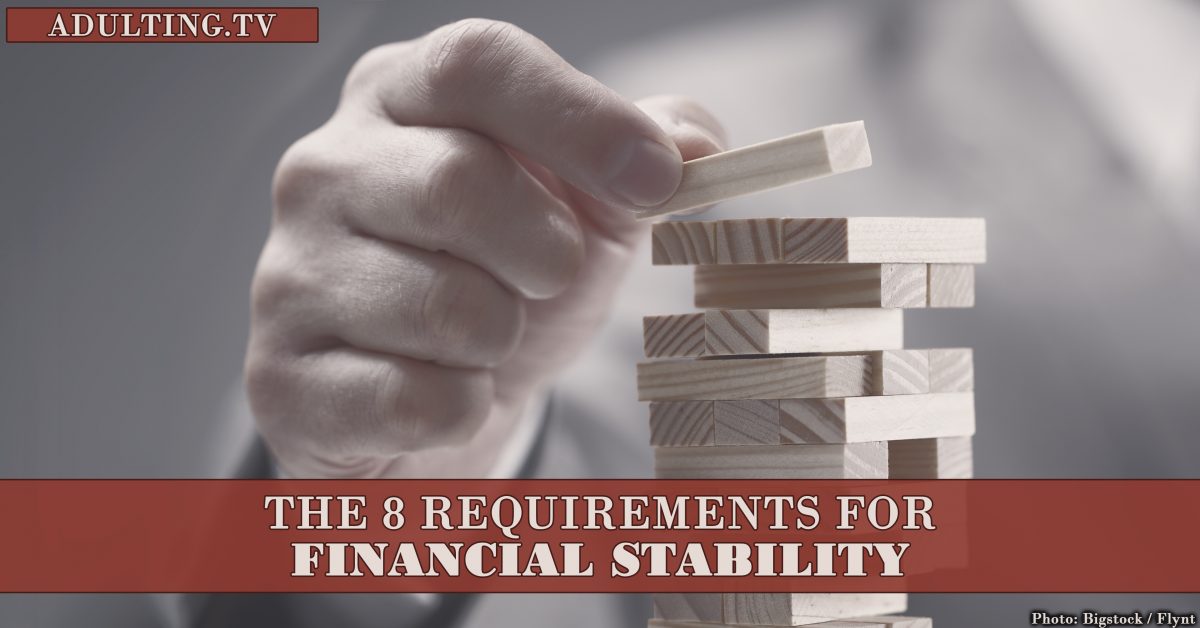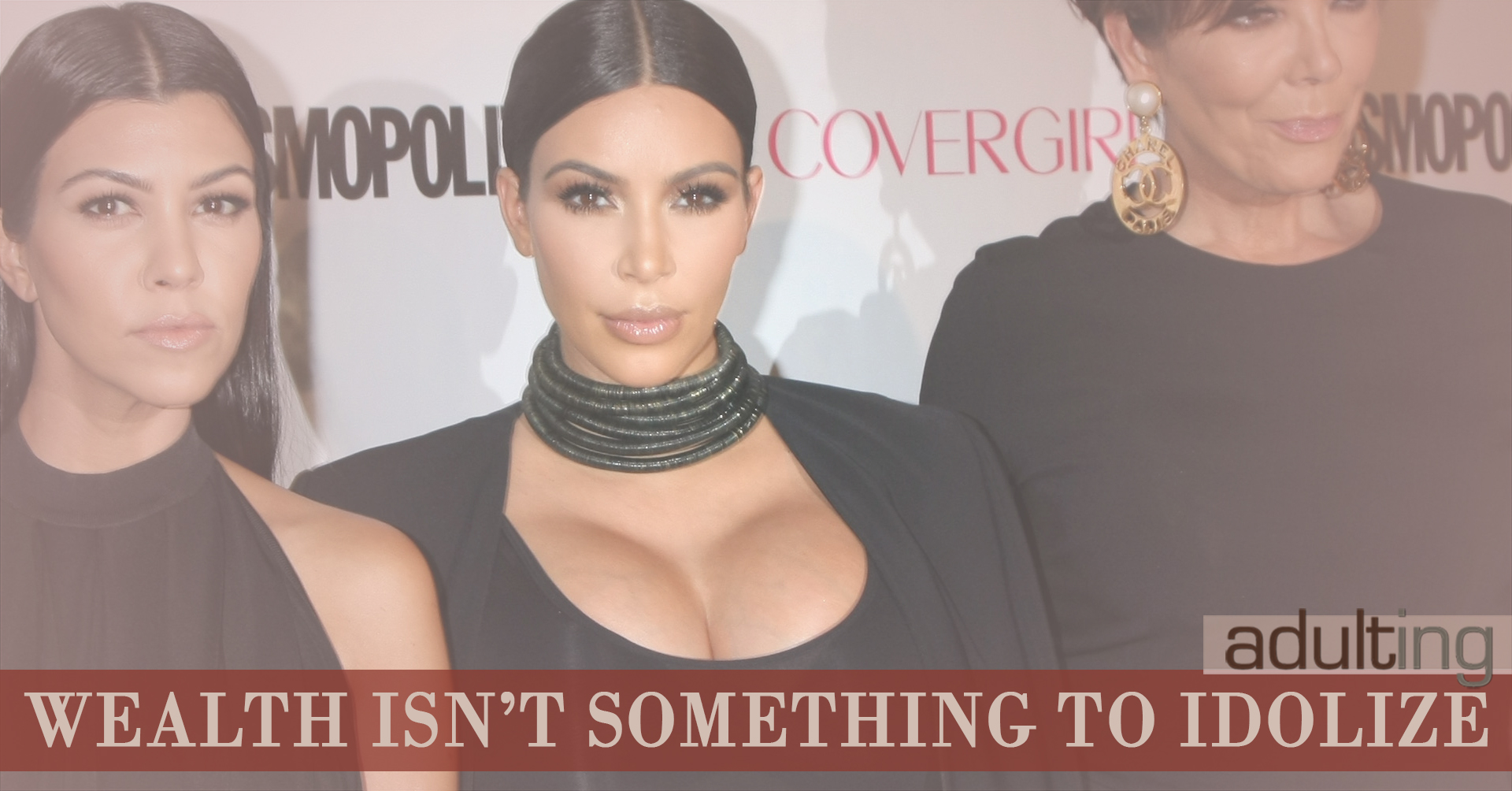If financial independence is the dream, financial stability is the first adult step along the path towards that vision.
On the final day of the year, fifteen years ago, I returned home from a weekend away to find my belongings on the lawn in front of the house I was renting. (I used the Internet Archive’s Wayback Machine to fact-check myself using my old, anonymous personal blog, my first time reading those entries in over a decade.)
My roommate thought I was moving out at the end of December, and when I wasn’t around, she moved two people into the room I had been occupying for several months. I had been planning to move out at the end of January, and the roommate knew this. But my name wasn’t on the lease, so perhaps she thought she could do whatever she wanted.
A later entry brought back the memory of a related event: I visited that apartment again ten days later to pick up a few remaining items, and the new occupants were moving out because that roommate committed some kind of check fraud. But I digress…
Being forced out of my living space with no notice on New Year’s Eve was the end of a particularly bad year. I lost a job, lost my car, and lost my girlfriend. I had moved to northern New Jersey for a job I no longer had. I was in my mid-twenties, but I wasn’t financially an adult. I survived by spending on credit cards, avoiding student loan bills, and accepting help from parents.
With the necessity of moving in with family as 2001 became 2002, I vowed to turn things around for myself.
I wasn’t necessarily aware of the idea of financial independence, but thankfully, that is how I can describe my situation today. In early 2002, I just wanted financial stability. And I had to figure out how to get there.
How I became financially stable.
After college, I chose a career somewhere between education and nonprofit. The organization I was working for was meant to be a stop-gap while looking for a teaching position, but I did enjoy it, and I didn’t put enough effort into moving forward. It cost me more to work as a nonprofit employee than I was earning — and I wasn’t even spending a significant amount of money.
1. I found a new job.
Instead of looking for my ideal career, my priority was earning money and getting back on my feet, taking control of my situation. Nothing is permanent. I could work on my loftier life goals while at least working somewhere during the day that would allow me the flexibility to plan for the future.
Without a car, I was limited to jobs that were accessible by walking or by traveling on the train. I turned to a technical temp agency. That’s how I earned money over breaks during college, and I knew I had many skills that would serve me well in corporate settings. I found something right away — an executive administrative assistant at a major financial firm.
This had no relation to my degree, but it was a job. And it paid 50 percent more than what I was earning at the nonprofit organization. Theoretically, I could even stay involved with the activity I was passionate about on weekends while working a “regular” job.
2. I designed a budget.
My dad helped me brainstorm a basic budget on the back of an envelope. That’s how I remember the situation. This budget had to take into account paying off a cash advance from my credit card, consumer spending on my credit card, and my student loans. I intended to move out and be less of a burden on family as soon as possible, so I budgeted for rent, as well. And savings for the future.
Partly because I wanted to stick to my budget and partly because I needed some self-reflection time to recover from bad choices, I also saved money in the first few months of my new job by staying in a fortress of solitude.
The budget was essential for setting myself up for financial stability.
3. I tracked every penny.
I used free software to meticulously track my spending, making sure I was staying within my budget and paying my bills on time.
You can only have a clear picture of where you’re going financially if you know where you are. It is incredibly easy today to get a full snapshot of your finances at any time thanks to technology. Apps communicate directly and securely with banks, so you all you need to do is check your phone to see where you stand. The app adds your bank balances and subtracts your debt, and the result is your financial net worth.
And beyond your net worth, you need to know how that changes over time, so you track your income and expenses, too. Today, I use Personal Capital and Quicken.
4. I started saving for the future.
It wasn’t enough to have a bank account whose balance was increasing every month. My new job offered a retirement plan with a matching contribution. Always say yes to a matching contribution. It’s free money.
How do you know when you’re financially stable?
To be considered financially stable — a true sign of adulting — you must meet these criteria.
- You must be spending less than you’re earning. It doesn’t matter which side of the equation you try to improve, but it helps to focus on both your expenses and your income. You can only cut your expenses back so far — but income potential is unlimited. When you spend less than you earn, you have a surplus. The surplus allows you to have some control.
- Living paycheck-to-paycheck — spending every penny you earn — means you have no surplus and you are not moving towards flexibility or control.
- You don’t have to be debt-free, but you must be paying down your debt and not accumulating any more. If you’re able to make your minimum payments on your debt and then some, you’re in good shape.
- You’re not relying on loans or gifts from family. This is the cornerstone of stability. You can make it on your own, just with your income and your expenses. It’s true that you may be in financial trouble if your income disappears, especially if you’re only beginning to establish savings, but for now, you are making it on your own.
- You are building your future through savings and investment. Your nest egg might not be too big just yet, but it’s growing. You’re putting aside extra money to create an emergency fund and you have a systematic transfer to an investment account, preferably a low-cost index mutual fund.
- Your friends support your goals. Don’t waste time around people who give you a hard time for being responsible. Often, when one starts acting more grown-up, the friends still wading through adolescence grow bitter. Or maybe you’re the last one to cross the threshold into actual adulthood.
- People reach this point at different times in their lives. I wasn’t financially adulting until I was in my late twenties. Some start when they’re 40. And I’ve seen some sixteen-year-olds who are taking control of their future I never would have considered.
- You’re moving forward steadily in your career. How you progress is often up to you, even when are faced with resistance was you’re trying to gain more responsibility, authority, and compensation at your job. You do know that often you have to accept more responsibilities before being granted more authority and increases in compensation. This type of success proceeds at different speeds, but you should always be aware of where you stand, and you make decisions that move you forward.
- You have health insurance and you take care of yourself. Your health and well-being affect your ability to have a life of any sort in the future, so you watch your health and have an appropriate health insurance plan. You see a doctor once every one or two years, at least, if you’re otherwise healthy, and you see a dentist and dental hygienist every six months. If you need work, you get it done.
- You pay your credit card balance in full every month. Credit cards can be great tools for people who are financially stable. They allow you to time-shift your spending, just like the DVR time-shifts The Walking Dead. They allow you to collect cash back and points that can be used for travel. But only if you avoid interest charges, late payments, and pay your balance in full every month.
- This could be considered an “advanced technique,” and many people start messing with credit cards before they are prepared to handle the responsibilities. So watch out.
Financial independence is the next step after financial stability, but it could take a lifetime to achieve. Imagine if you no longer had to rely on your job. Imagine if you could live the life that you wanted to live, go where in the world that you wanted to go, and do anything that you wanted to do — without any concern about what the financial consequences would be.
That is financial independence. And you can’t get there without financial stability first.


![[A065] True Freedom: Bust Out of Your Financial Chains](https://adulting.tv/wp-content/uploads/2017/03/a065-1200x628.jpg)



![[B011] Earn Money AND Do What You Love](https://adulting.tv/wp-content/uploads/2016/11/earn-money-do-what-you-love-1200x628.jpg)
![[A044] Start It Up: Make Your Entrepreneurial Dreams Come True](https://adulting.tv/wp-content/uploads/2016/11/a044-1200x628.jpg)





